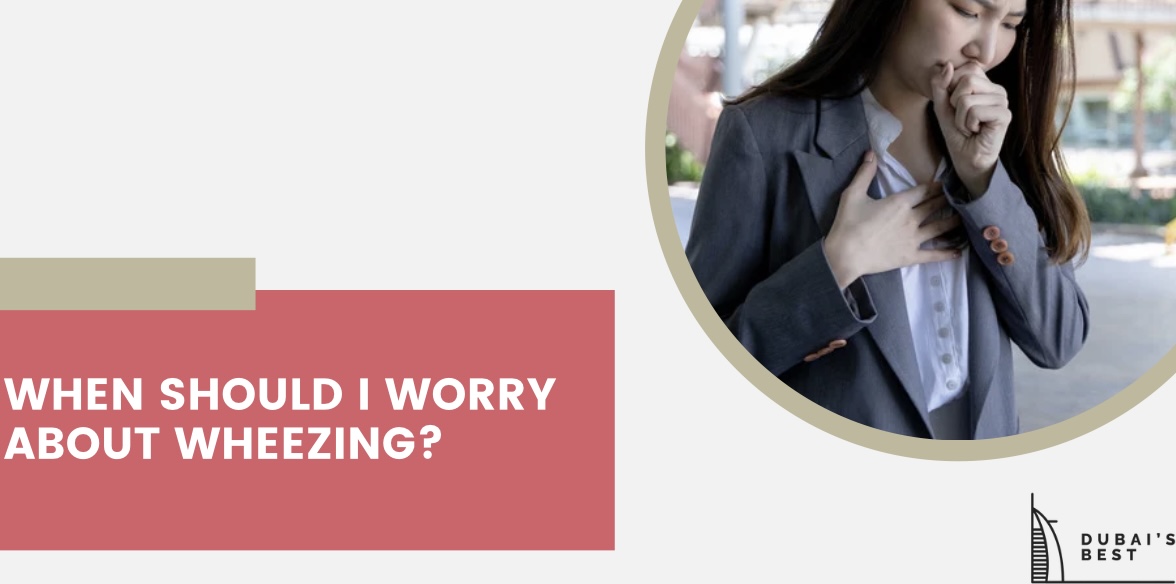When should I worry about wheezing?
Wheezing is a usual experience during respiratory illnesses. However, if you begin to wheeze every time you breathe in, it can be pretty alarming and even scary.
Your wheezing is as distinguishable as your own voice, after all. But when do you know if it’s something serious?
Here’s everything you should know about wheezing.
What is wheezing?
Wheezing is the sound made by breathing through a narrowed windpipe. It can be caused by many different medical conditions, including asthma, bronchitis, anaphylaxis, or heart failure.
The most common cause of wheezing is asthma. The airways in the lungs narrow and swell because of mucus buildup.
This makes it difficult to breathe in enough oxygen to keep up with your body’s needs. In addition to wheezing, other symptoms of asthma include chest tightness and coughing.
Some people with asthma have a history of flare-ups that affect their breathing every day.
Others have occasional flare-ups triggered by exercise or exposure to cold air or allergens like dust mites or pollen.
If you’re experiencing wheezing, it’s important to see a doctor right away to rule out other possible causes such as pneumonia or foreign objects lodged in your throat or lungs.
What causes wheezing?
Wheezing occurs when the airways narrow and cause a whistling sound. Several factors can cause this such as:
- Viral or bacterial infections
- Allergies or asthma
- Tumors and polyps
- Heart failure
- Anaphylactic shock (acute allergic reaction)
- Exposure to toxins such as smoke inhalation
How is wheezing treated?
Wheezing can be treated with a number of different medications, but the most common are inhaled beta-agonists, which open up the airways. These include albuterol and levalbuterol.
Your doctor may also prescribe steroids or other preventative measures such as surgery or steroid injections. If your wheezing is severe and chronic, your doctor may suggest an oxygen concentrator to help you breathe easier at home.
The best way to treat wheezing is by increasing your body’s tolerance for allergens through elimination diets, exercise, and natural remedies such as supplements that target inflammation in the body.
How do you prevent wheezing?
To prevent this condition, you should avoid known triggers. These can include:
- Known asthma triggers. These are things that make your asthma worse, such as pollen and pet dander.
- Secondhand smoke. Smoke doesn’t just affect smokers!
Smoke from cigarettes and cigars nearby can affect your lungs too, so if someone is smoking around you, keep away from them or ask them to step outside if possible.
- Dust mites and cockroaches can trigger wheezing attacks as well. Try keeping your home or apartment clean with frequent vacuuming and cleaning of carpets, floors, and any upholstery furniture.
- Also, consider getting rid of any pets that may cause problems for you. Keeping a cat indoors at all times will keep it from tracking in plenty of allergens from outside.
- Mold is another common problem that can cause allergic reactions. Mold spores live everywhere outdoors but especially love dark corners inside where moisture collects like bathrooms or basements.
So always check these areas thoroughly before entering any space where mold might be present!
When should you see a doctor?
Wheezing is a sign of an underlying problem. If you have trouble breathing, don’t delay seeing a medical professional.
Wheezing can indicate that you’re having difficulty getting enough air in your lungs, which is called dyspnea.
This may be caused by an allergy or asthma attack, or it may mean something more serious like heart failure, so it’s important to get checked out by your doctor if you’re wheezing long-term and often.
Especially when your child is experiencing this, it’s vital to visit a pediatrician right away.
While many people think of wheezing as simply “part” of a cold or the flu, this isn’t actually true. When you get sick with these illnesses, your body produces mucus to protect itself from viruses and bacteria that are present in the sinuses/throat/lungs (and elsewhere).
The mucus creates nasal congestion and makes it difficult for air to pass through the nasal passages. This causes coughing and difficulty breathing similar to wheezing.
However, if you’re also experiencing shortness of breath but not necessarily a fever or other signs like coughing up phlegm, then there could be another reason why things aren’t working quite right inside your respiratory system.
It’s essential that you know when to seek urgent medical assistance, especially when your wheezing becomes unbearable. This isn’t something you should take lightly, as it involves your breathing functions.

